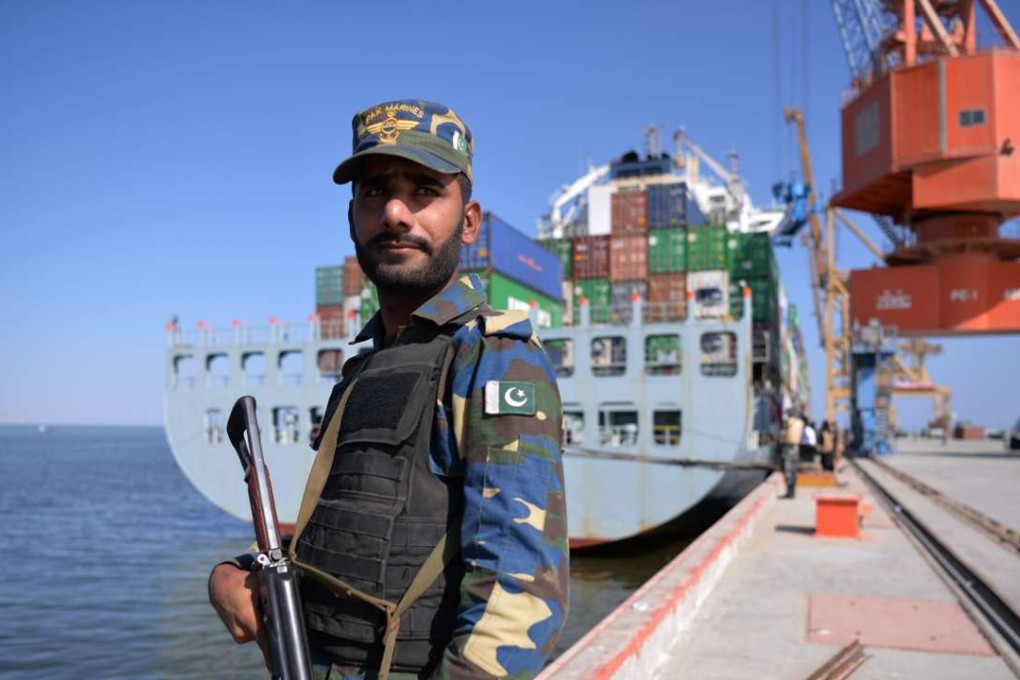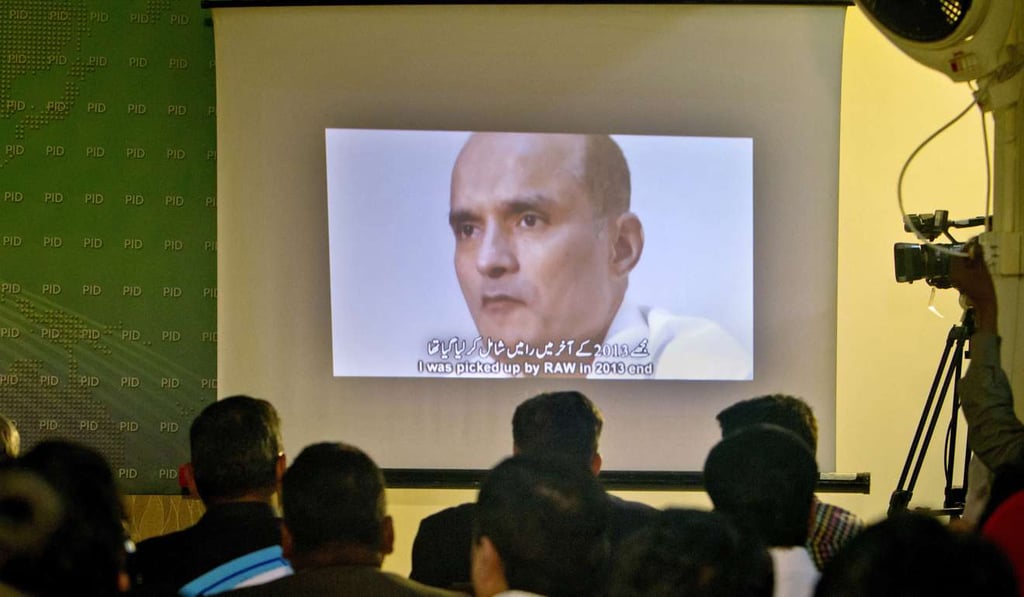China in the middle: Pakistan trade corridor under spotlight after Indian ‘spy’ gets death sentence
India has labelled a Pakistani military court decision to sentence a naval officer to death as ‘premeditated murder’

China is again caught up in a South Asian showdown as India cries foul over a Pakistani court decision to sentence naval officer Kulbhushan Jadhav to death for alleged espionage and sabotage activities in Baluchistan – a key province in Beijing’s economic corridor project.
India has labelled the military court’s decision “premeditated murder”, and promised to do everything in its power to save Jadhav.
The Jadhav saga comes after India made repeated complaints about the China-Pakistan Economic Corridor (CPEC) project – a US$55 billion (HK$427.37 billion) trade route that will run from Xinjiang through to the deep-water Pakistani port of Gwadar on the Arabian Sea. The corridor would give China easy access to fuel imports from the Middle East and Africa, while creating a cheap overland export route for interior provinces such as Gansu and Qinghai.
Pakistan happy to aid in China's quest for land route to the west; India, not so much

India resents the fact that the corridor passes through Pakistan-occupied Kashmir, which it claims as its own, and provides China a toehold in the Indian Ocean.
Despite India’s distaste for the project and a spate of terror strikes in Baluchistan, China and Pakistan have persevered. Pakistan even blames India for engineering these attacks to disrupt work on CPEC.
“Given the stakes and the need for stability in Baluchistan, as China pushes full speed ahead with CPEC, Pakistan would have a strong incentive to develop a deterrent to acts of meddling by outsiders. The death penalty, perhaps, could serve as such a deterrent,” said Michael Kugelman, deputy director of the Asian programme at The Woodrow Wilson Centre in Washington.